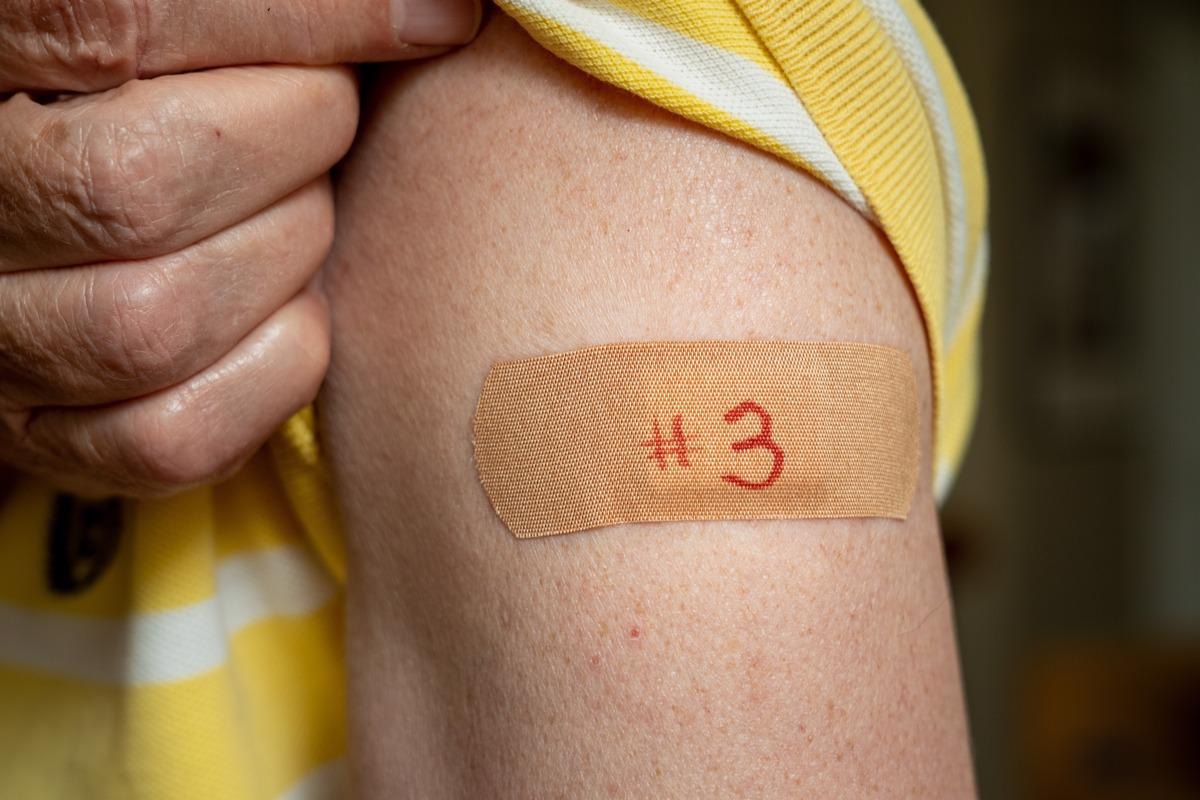
In a recent study posted to the Research Square* preprint server, researchers assessed the levels of immunoglobulin (Ig) G and IgA antibodies in sera samples from healthcare workers (HCW) before vaccination, after the first vaccine dose, after eight months of the first dose, and after receiving the booster shot.

Background
It is crucial to evaluate the waning of the immune response in HCW, a high-risk population that remains constantly in touch with severe acute respiratory syndrome coronavirus 2 (SARS-CoV-2)-infected patients.
The world has entered the third year of the coronavirus disease 2019 (COVID-19) pandemic, yet there is no one specific treatment for this deadly infection. Therefore, vaccinations and developing herd immunity are the only effective means to mitigate the adverse effects of COVID-19.
In this scenario, monitoring HCW characteristics and their response to vaccination presents an opportunity to examine vaccine efficacy (VE), extrapolate it to a larger population, and guide public health decisions.
About the study
In the current study, researchers enrolled 103 HCW vaccinated with the BNT162b2 vaccine in January 2021. The test subjects comprised mainly females with an average age of 40.26 years. They had several comorbidities, including obesity, allergies, diabetes, hypothyroid, and cardiovascular diseases.
The researchers followed up with the test subjects before and after vaccination between May 2020 and October 2021 for evaluating the serum IgG and IgA levels at different time points – immediately after primary vaccination, at the eight month-follow-up, before the third booster dose, and up to three weeks of receiving the booster dose.
The team performed an enzyme-linked immunosorbent assay (ELISA) to determine the serum levels of anti-SARS-CoV-2 IgG and IgA.
Study findings
All the test subjects had high IgG and IgA levels after receiving the first dose of the vaccine, irrespective of their infection status before vaccination. Moreover, age, gender, or pre-existing comorbidities did not alter the antibody response after vaccination. Therefore, further studies are warranted to ascertain the correlation of age and sex with the immune response induced by the BNT162b2 vaccination.
After eight months of the first round of vaccination (between January and October 2021), the mean IgG and IgA levels diminished by 2.4 times and 2.7 times, respectively. After the booster shot, IgG and IgA levels immediately increased 2.7 and 2.5 times, respectively. The IgG levels after booster vaccination were statistically higher than those obtained by the first vaccination; however, the IgA levels after the booster were comparable to those attained after the first vaccination.
In a study conducted on HCW in Germany, the researchers observed that SARS-CoV-2-specific IgM and IgA antibodies declined rapidly over time, whereas IgG decreased slowly. Moreover, previously SARS-CoV-2-infected subjects induced higher IgG levels and lesser IgA levels after booster vaccination. The study pointed out that the correlation between the total antibodies and their neutralizing capacity is not yet fully comprehended.
On the other hand, studies have demonstrated that the booster dose enhances both the quantity and quality of anti-SARS-CoV-2 antibodies, inducing significantly higher neutralizing titers than the titers obtained after the two-dose vaccination series.
In one of the cases, where there were no detectable IgG and IgA antibodies after eight months post-first vaccination, the booster shot rapidly induced high amounts of IgG and IgA antibodies within the first week. Both IgG and IgA levels continued to rise after two to three weeks of receiving the booster shot. Interestingly, the anti-S IgG antibodies surpassed the previously achieved antibody levels post the first dose of vaccination, suggesting a robust cellular memory.
Concerning adverse effects post-vaccination, the booster shot caused mild pain at the injection site in over 75% of the test subjects.
Nine subjects from the study group (8.73%) developed COVID-19 four months after the booster shot, demonstrating that genetically distinct new SARS-CoV-2 variants have the potential to evade the established immune memory.
Conclusions
Although knowledge regarding antibody and cellular persistence is sparse, the study highlighted the complex regulatory mechanisms that regulate the generation of immune memory after both natural infection and vaccination.
The third dose of the BNT162b2 vaccine (booster) addressed the issue of waning immunity and bypassed the inefficacy against SARS-CoV-2 variants initially; however, after five months, the immune protection elicited by the booster dose declined dramatically. Therefore, more clinical studies are required to verify its safety, evaluate its necessity, and ascertain whether there is a need for an additional dose after the booster shot.
*Important notice
Research Square publishes preliminary scientific reports that are not peer-reviewed and, therefore, should not be regarded as conclusive, guide clinical practice/health-related behavior, or treated as established information.